
by Gideon Marcus
Reversing the trend
The United States is the richest country in the world. By any reckoning, we measure in superlatives: biggest economy, strongest military, most movies, coolest cars. But there is one outsized statistic we shouldn't bury in gloss — 19% of Americans live in poverty.
Several months back, newly installed President Johnson took an unscheduled trip through Appalachia, the poorest part of our country. This region, between the Eastern seaboard and the Plains states, north of the agrarian South and the Industrial North, has traditionally been an economic backwater. Shocked by what he found, LBJ promptly declared a War on Poverty, seeking to continue the efforts of President Roosevelt to bring up the nation and, in particular, Appalachia.

Yesterday saw a great step forward taken in that direction. President Johnson signed into law the Economic Opportunity Act, designed to help the poorest families find their way out of their economic quagmire. This will be achieved a number of ways, largely through the creation of new task forces and funding of groups whose goal is poverty relief.
For instance, the newly created Job Corps and Neighborhood Youth Corps will provide work and training for the underskilled and underemployed. Work Study college grants and Adult Basic Education will ensure that the poor are not barred from employment by illiteracy or lack of education. There are also loan and grant programs for individuals and agencies.

It's a smart system, not a simple redistribution of wealth but an investment in the next generation of Americans. I have a lot of confidence that it will be successful — provided, of course, that the money gets put to good use. Time will tell.
Big and small scale
Just as the White House has endeavored to improve the lot of Americans, so has Fantasy and Science Fiction's editor worked to address a disturbing trend. In fact, this month's issue is easily the best one of the magazine that I've read in a while, and it's not even an "All-Star Issue". It's just good.
So for those of you who came to hear me flog F&SF, you're going to be disappointed…

Mel Hunter's cover shows a post-Mariner 2 Venus, a cloudy inferno. It's a beautiful piece, though it pertains to no story in this issue and is, perhaps, a better fit for Analog.
The stories, on the other hand, are pure F&SF:
Chameleon, by Ron Goulart
Ron Goulart writes these flip, droll little pieces, with deft skill (if not great consequence). This particular one stars Ben Jolson, member of a corps of secret agents whose special talent is shapeshifting. People, animals, furniture, these superspies transform instantly and apparently without regard for mass considerations. Jolson is a particularly adept, if eccentric, agent, grudgingly tasked with getting the prime minister of Barafunda to make a proclamation against the practice of using soulless, mass-produced people as slave labor. By any means necessary: becoming a trusted adviser, inciting violence, even becoming the PM herself.
Goulart keeps things real enough to avoid farce, light enough to avoid melodrama. If you like Laumer's Retief or Harrison's Stainless Steel Rat stories, this will be right up your alley.
Four stars.
A Miracle Too Many, by Alan E. Nourse and Philip H. Smith
Dr. Stephen Olie discovers that being able to miraculously cure with a touch is a curse as well as a blessing. Both Nourse and Smith are physicians, so it's no surprise that this piece involves the medical profession. I liked everything but the ending, which felt a bit lazy.
Three stars.
Slips Take Over, by Miriam Allen deFord
Ms. deFord, who is 76 today (Many Happy Returns!) offers up a tale of a man who slips between parallel timelines as easily and inadvertently as we might get lost on the streets of an unfamiliar city. It's a neat idea, with the kind of great creepy atmosphere deFord is good at, but she doesn't do much with the story. Plus, there are inconsistencies regarding what items do and do not travel with the hapless universe-crosser.
Three stars.
Olsen and the Gull, by Eric St. Clair
Eric, the husband of famed author Margaret St. Clair, is an author in his own right. This is his first story not to be written for children and involving SFF elements. In this case, it's a shipwrecked lout of a sailor whose only entertainment is to crush the eggs of the multitudinous seagulls while chanting "tromp tromp tromp." One enterprising bird undertakes to distract Olsen the sailor by teaching him the art of summoning… with amusing and unfortunate results.
Four stars.
Carbonaceous Chondrites, by Theodore L. Thomas
Even Thomas' little column, usually sophomoric in the extreme, isn't bad this month. He posits that the carbon compounds being found in certain meteorites are evidence of extraterrestrial life — but not the way you think!
Three stars.
Four Brands of Impossible, by Norman Kagan
The longest piece of the issue is by a new writer, a student at New York City College. As befits a novice, the story, about a mathematician tapped to develop an illogical logic, is somewhat unfocused. Moreover, when it's all done, I'm not exactly sure that anything of importance has happened.
On the other hand, there are bits in the story that are quite compelling, about space research, the value of an automated presidency, the folly of racism, etc., and I will remember the novelette for these if nothing else.
Thus, three stars.

The New Encyclopaedist-II, by Stephen Becker
A mock encyclopaedia article, about Jacob Porphyry, who reversed the trend toward malaprop and literary inanity by making his books hard to read.
It's cute once you get into it. Three stars.
Theoretical Progress, by Karen Anderson
This first of two poems by Karen Anderson (Poul's other half), is a modern-day send-up of Antigonish.
I liked it. Four stars.
Investigation of Galactic Ethnology, by Karen Anderson
On the other hand, the second poem, a limerick, is barely worth a pained smirk.
Still, that's the appropriate reaction to a well-delivered pun. Three stars.
Elementary, by Laurence M. Janifer and Michael Kurland
Raise your hand if you want to murder your agent. Goodness, there are a lot of you! I shouldn't be surprised…I'm not even convinced that they're a necessary evil these days. Anyway, this story is about a pair of authors who decide to put paid to their 10% bloodsucker only to find their efforts repeatedly thwarted.
This is another piece with a great beginning and middle, but the ending didn't quite work for me. Perhaps you'll feel differently.
Three stars.
The Haste-Makers, by Isaac Asimov

The Good Doctor's non-fiction article is on catalysts this time around. I learned a great deal, but then chemistry has never been my bag. The big revelation I got out of the piece was that catalysts aren't magic but merely a side effect of our living in an oxygen-filled environment (just like airplanes no longer boggle the brain when you realize that they don't fly on nothing — air just happens to be invisible).
Four stars.

The Deepest Blue in the World, by S. Dorman
When the stars become a battlefield, the men will go off to fight and die, and women will be brought to the Wedding Bench to conceive and rear the next batch of soldiers. If they resist their breeding lot in life, it's prison and the mines for them.
A chilling story by an author with an uncanny vision of female subjugation. A strong four stars.
Inconceivably Yours, by Willard Marsh
A bachelor worries that the failure of a contraceptive will end his bachelor days, but one God's curse is another man's blessing. A fair story with a delicious title.
Three stars.
The Star Party, by Robert Lory
The astrologers presume to know a lot about people. Unfortunately, master star-teller Isvara picked the wrong two Madison Avenue party attenders to cast readings on. It's a nice little tale, though the astronomical inaccuracy at the end was unfortunate.
Three stars.

A Crown of Rank Fumiter, by Vance Aandahl
Last up, we have young Vance Aandahl, who started out strong and has been delivering weak tea indeed for several years. This piece, about a recluse who, in the midst of death finds his humanity, is a refreshing change of direction — and thus a perfect capper for a surprisingly strong issue.
Four stars.
Summing up
I don't know that any of these stories hit it out of the park for me, but there were plenty of good pieces and no clunkers in the lot. Even Davidson's introductions were entertaining. This issue will certainly be a contender for best magazine this month.

More good news: F&SF has several foreign editions. They've just started a Spanish edition, Minotauro, the first issue of which arrived by mail the other day. My daughter, who is learning the language in high school, is currently working her way through Damon Knight's What Rough Beast and enjoying it, even translated. So, if you speak Spanish, and you want a "best-of" issue of the magazine, you could do worse than to pick up a copy!

[Come join us at Portal 55, Galactic Journey's real-time lounge! Talk about your favorite SFF, chat with the Traveler and co., relax, sit a spell…]


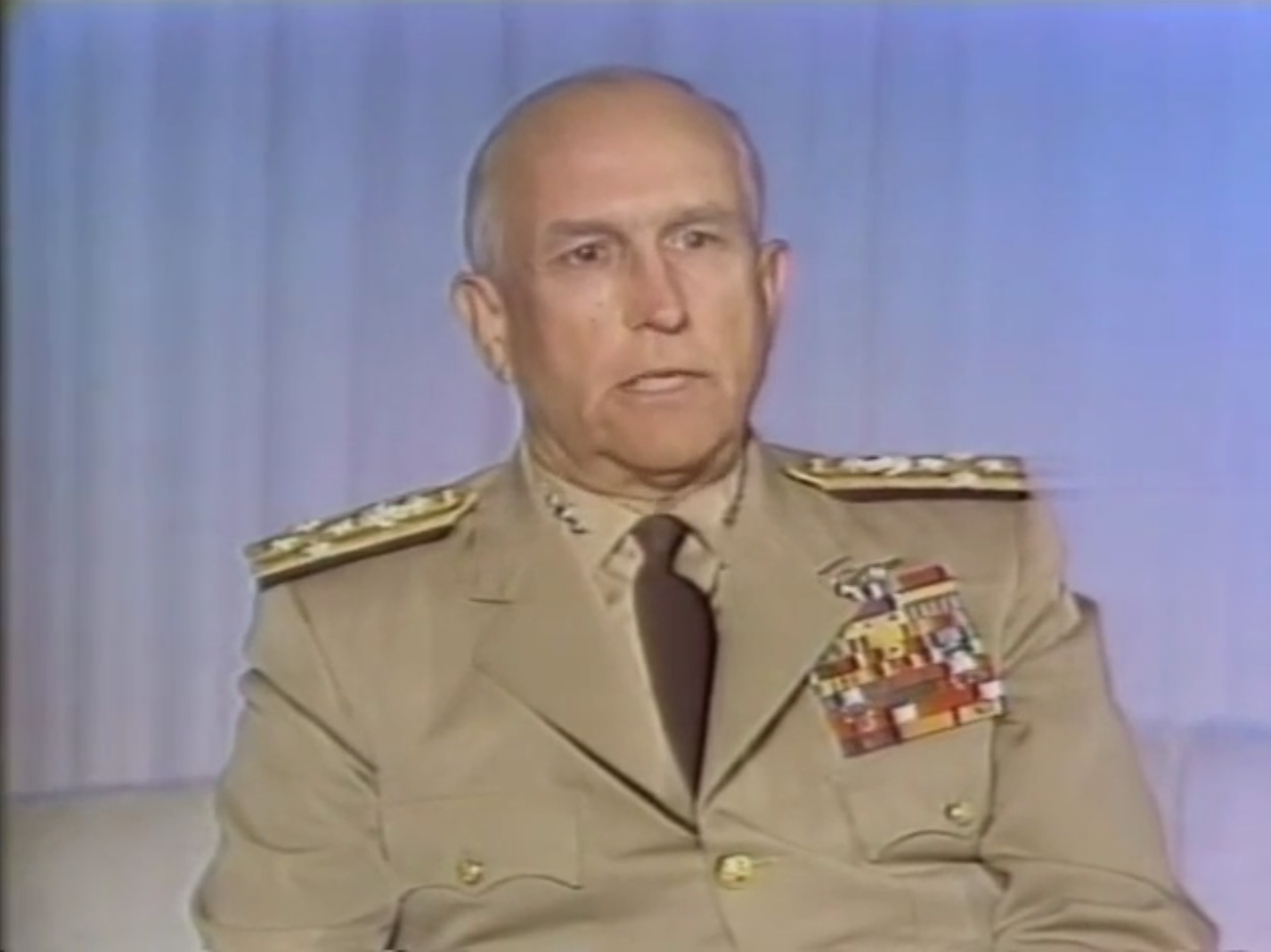
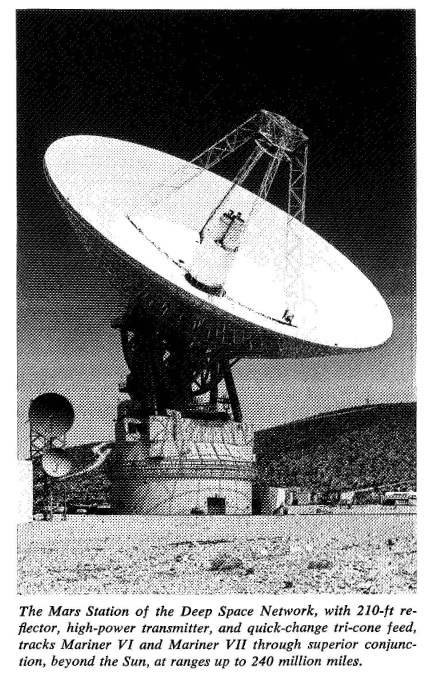
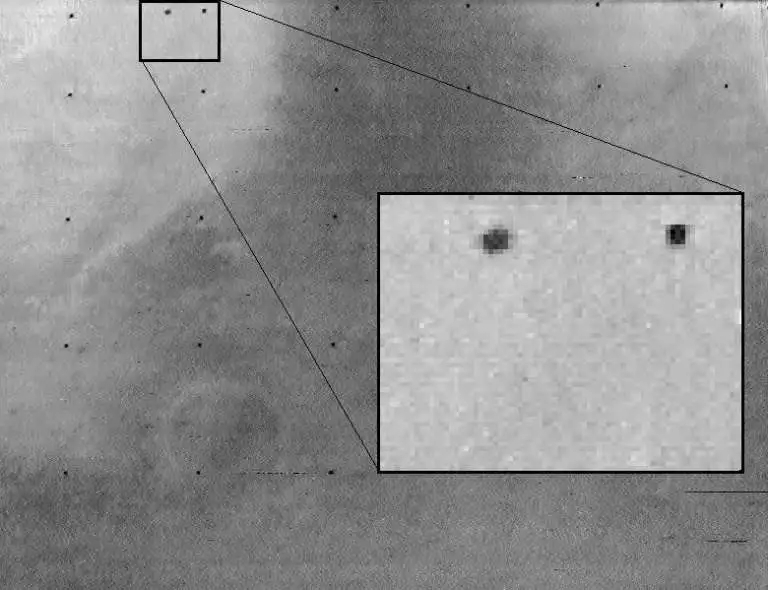
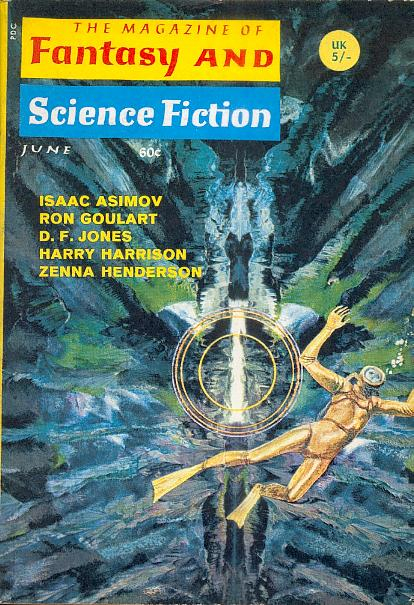

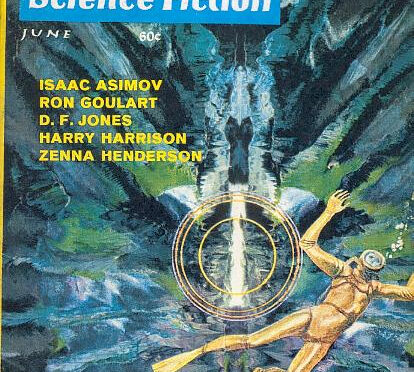
![[May 18, 1965] Rubber Ball (or Skip the End) (June 1965 <i>Fantasy & Science Fiction</i>)](https://galacticjourney.org/wp-content/uploads/2020/05/650518cover-664x372.jpg)


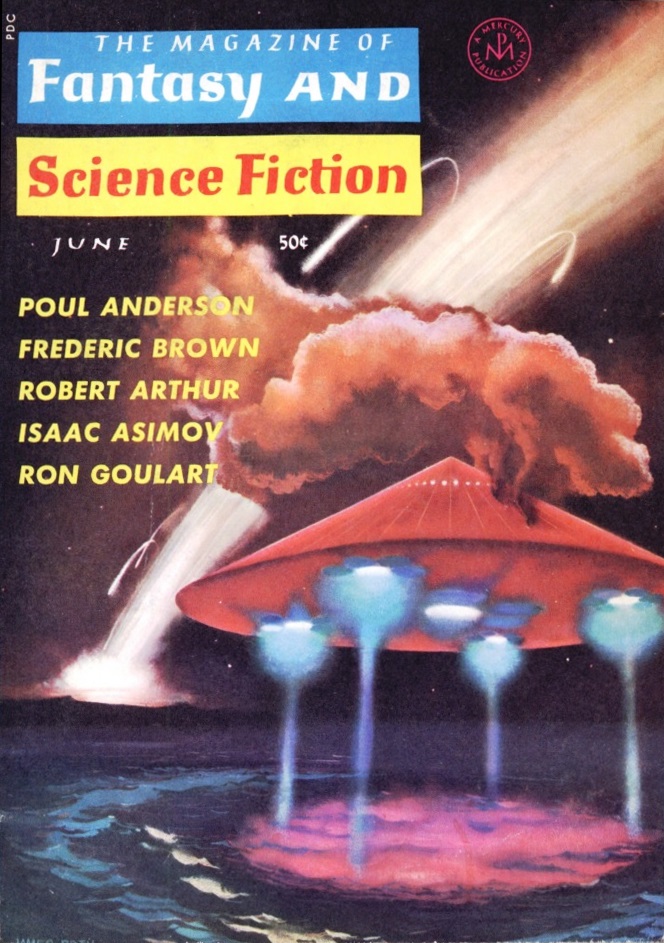
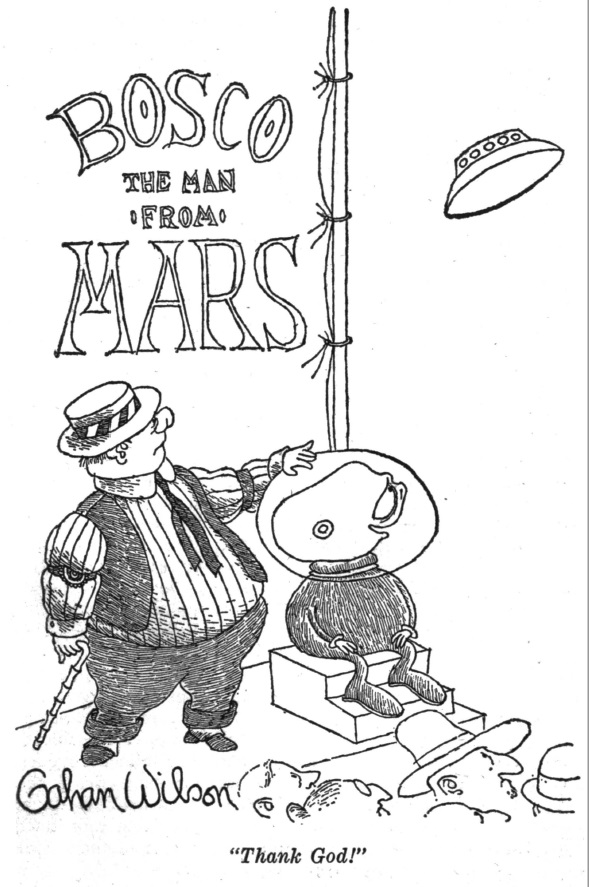


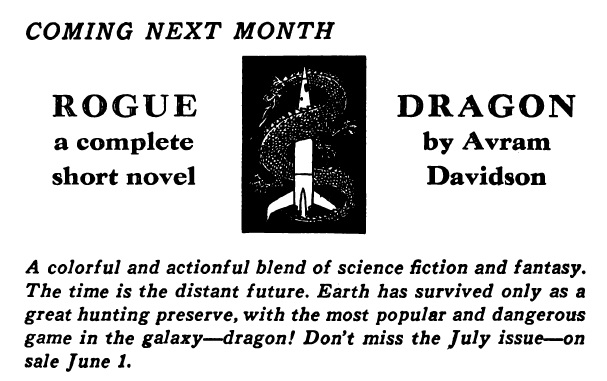

![[August 21, 1964] The Good News (September 1964 <i>Fantasy and Science Fiction</i>)](https://galacticjourney.org/wp-content/uploads/2019/08/640821cover-672x372.jpg)








